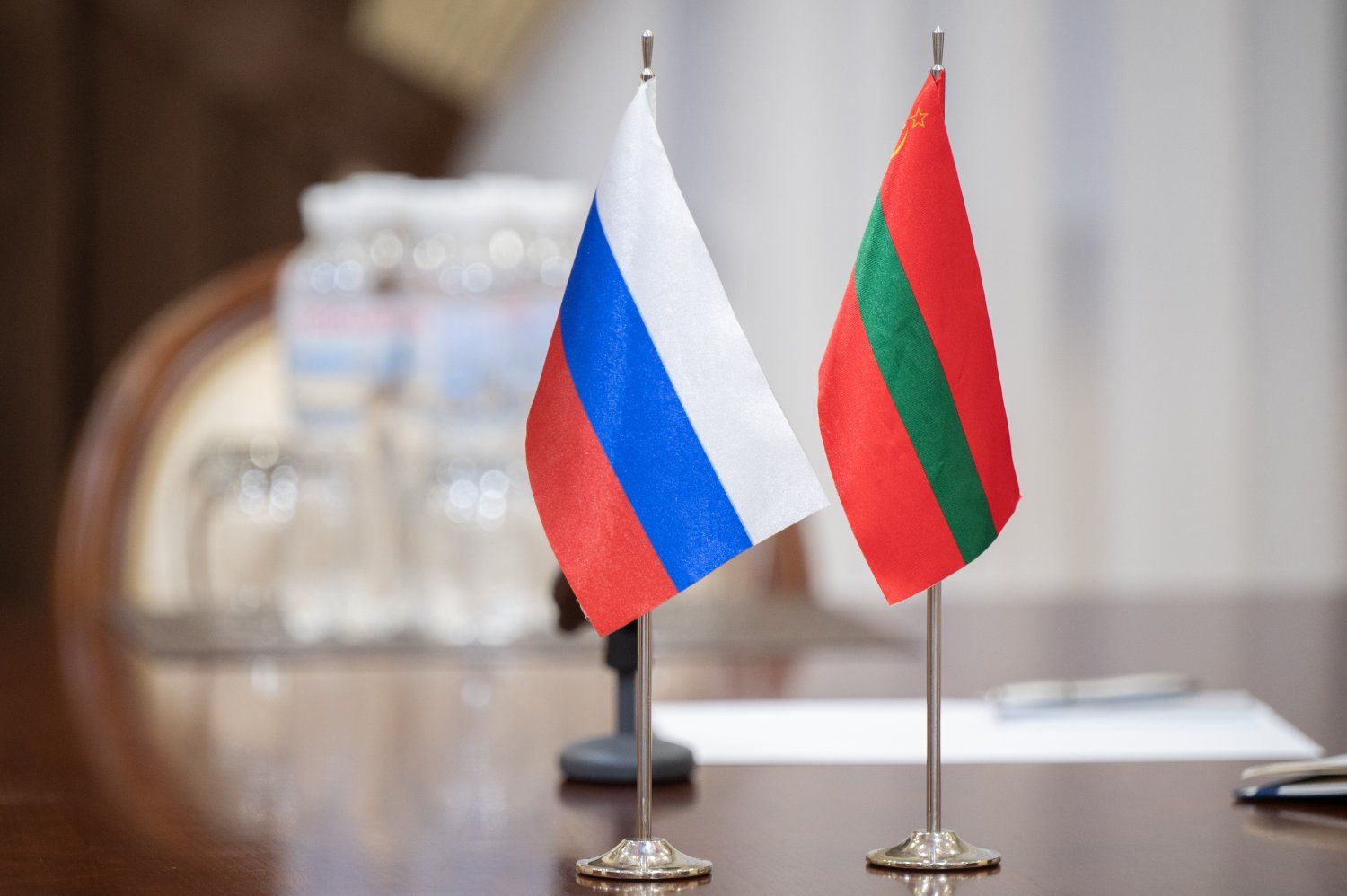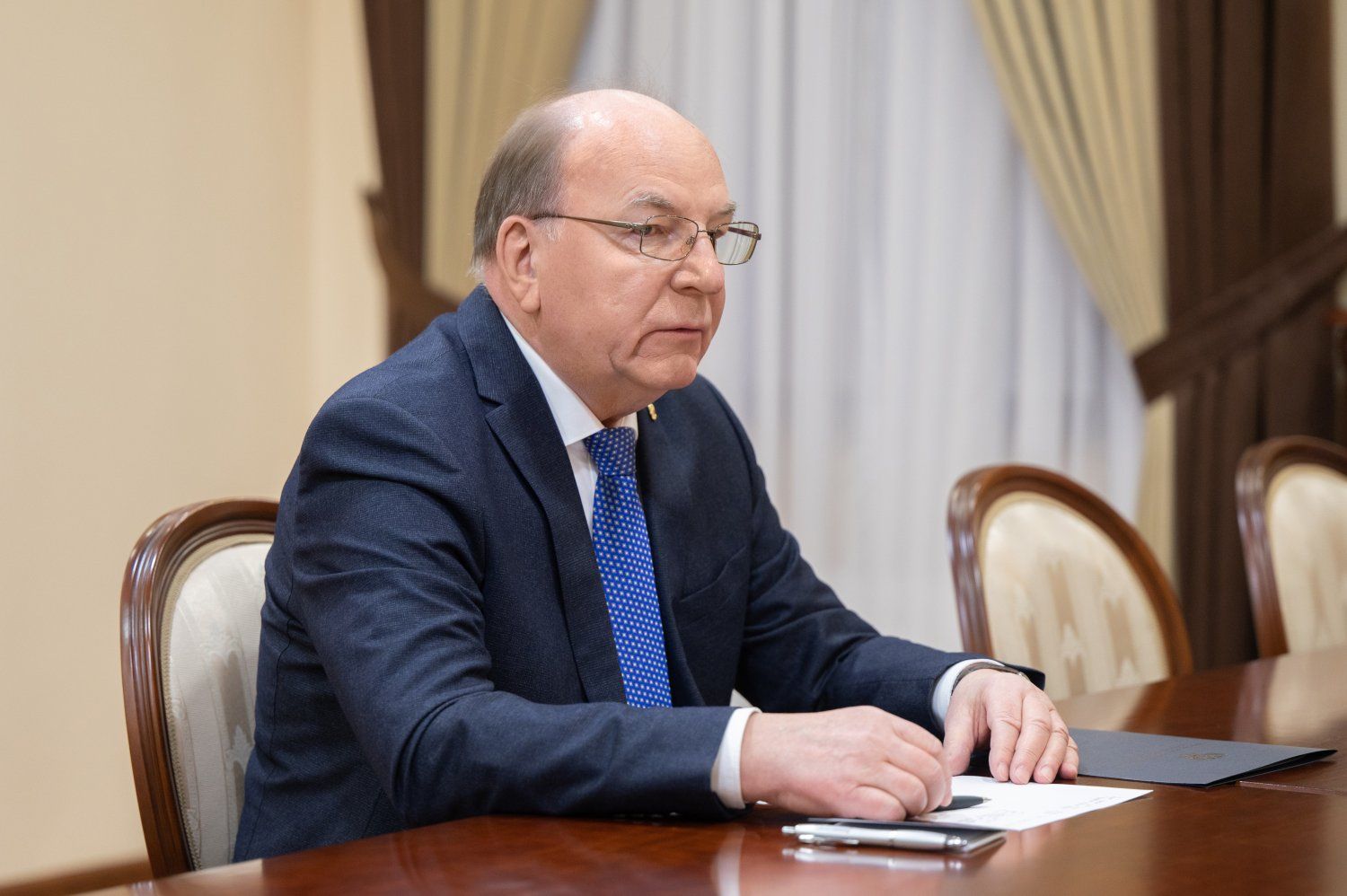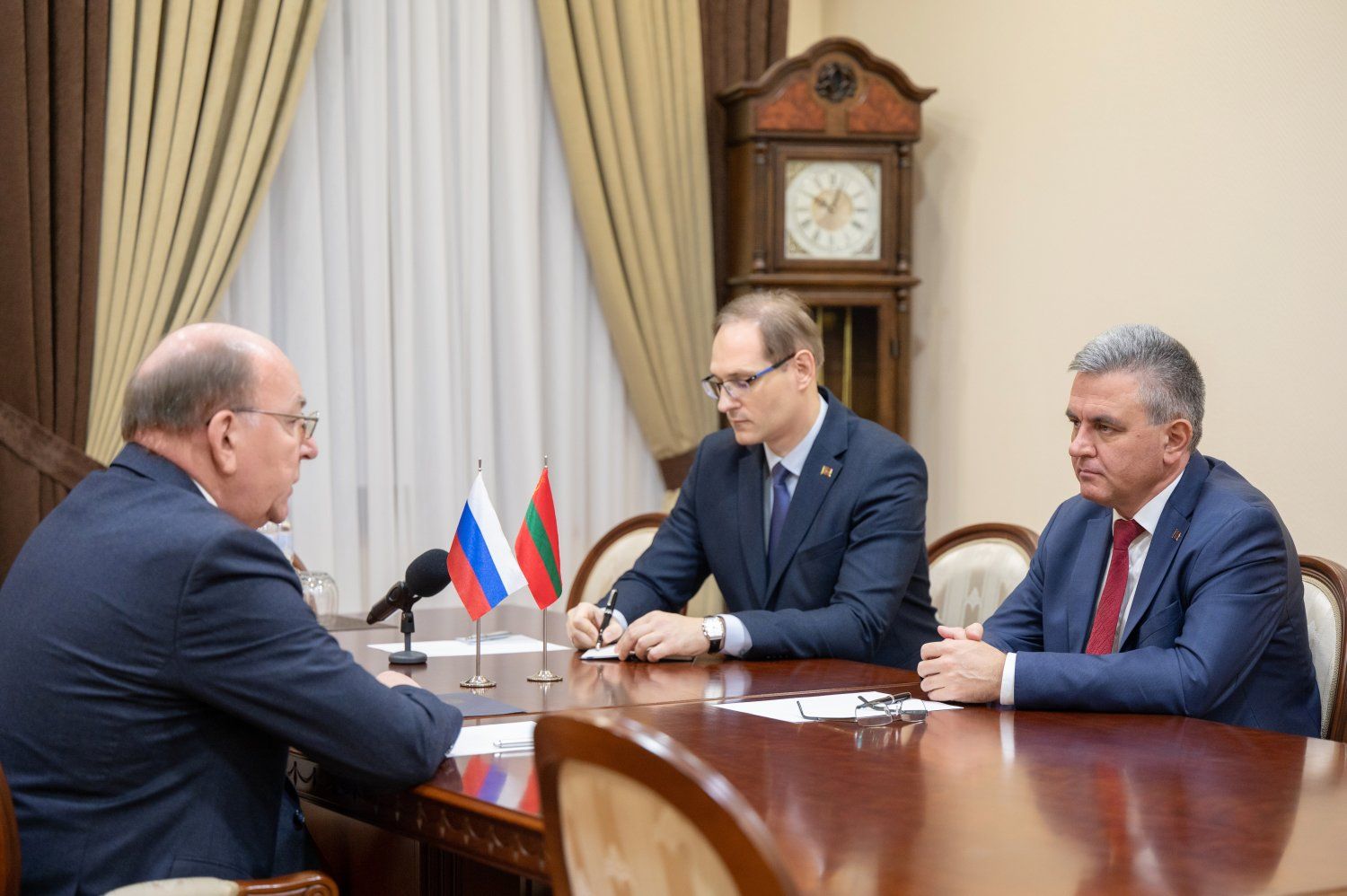Vadim Krasnoselsky held a meeting with Oleg Vasnetsov, Russian Ambassador to Moldova. The discussion took place in the working office of the PMR President. The PMR Foreign Minister Vitaly Ignatiev also attended the discussion.
Welcoming the Russian diplomat, the Pridnestrovian Head of State stressed the importance of such meetings and noted that the agenda was filled with topical issues of both bilateral Pridnestrovian-Russian relations and negotiation topics within the Permanent Conference format. Vadim Krasnoselsky described the preservation of peace and security in the Pridnestrovian Moldavian Republic and the entire region as the fundamental goal of the negotiations. He defined the Pridnestrovian position as peace-loving.
The Pridnestrovian Head of State said that the possibility of holding an informal meeting of the participants in the 5+2 format was being discussed. He asked the Russian Ambassador for his opinion on this matter. Oleg Vasnetsov said he welcomed the use of any platforms to bring the negotiating process out of its current state of anabiosis. Vadim Krasnoselsky stressed that he supported the use of diplomatic tools in all their diversity, but emphasized that alternative dialogue forms and platforms could fulfill exclusively supplementary functions, while preserving the leading role of the 5+2 format. “The 5+2 format is not subject to substitution. This is the major negotiating format between Pridnestrovie and Moldova,” Vadim Krasnoselsky stressed noting that such is the official position of Pridnestrovie.
The interlocutors mentioned the possibility of another round of negotiations in the 1+1 format (Political Representatives from Pridnestrovie and Moldova) before the end of this year.
The ways to overcome the energy crisis were also addressed. Vadim Krasnoselsky described the past week’s developments as an important step in that direction and commended all those involved in reaching an agreement. Oleg Vasnetsov said that the situation is “in the focus of attention of the top political leadership of the Russian Federation,” as evidenced by the fact that Pridnestrovie-related issues were raised at the meeting of the Presidential Council for Civil Society and Human Rights the day before.
With regard to the position of Russian citizens permanently residing in Pridnestrovie, the participants noted improvements in the work of the Tiraspol consular office. The sides discussed other social, humanitarian and economic issues and outlined plans for further cooperation in the current complex geopolitical environment that imposes its own conditions.










